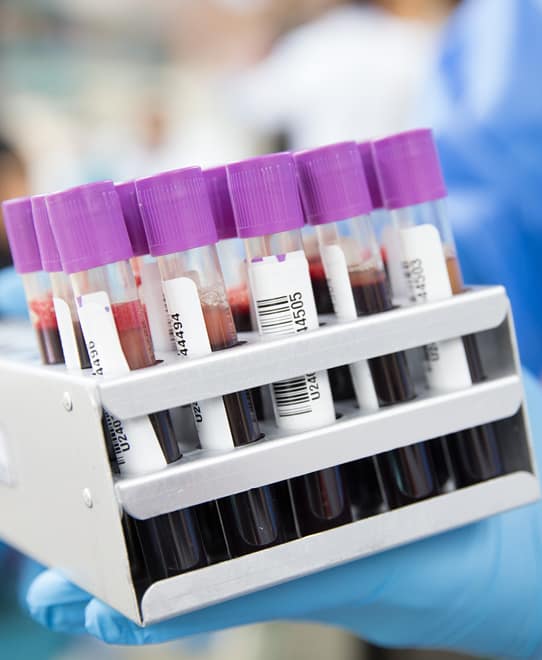Prostate cancer is the second most common cancer in men, with 1 in 6 diagnosed in their lifetime. This equates to approximately 1.46 million men diagnosed globally each year, with a further 5 million living with the disease.
Many developed nations offer population-based screening for men. For example, in the United Kingdom the NHS states that all men over the age of 50 can be offered, or ask, for prostate screening using a blood-based prostate specific antigen (PSA) test. Abnormalities in PSA levels can indicate complications in prostate function, including cancer.
However the PSA assay is known to have poor sensitivity and specificity, between 9% – 33% %, and 91%, respectively. See: Prostate-Specific Antigen – StatPearls – NCBI Bookshelf . The NHS estimates that 3 in 4 men who have a raised PSA will not actually have cancer and that 15% of cancer can be missed with PSA testing alone. As a result, many men may undergo a prostate biopsy unnecessarily. See: What is the most accurate test for prostate cancer? | The Royal Marsden ANGLE’s circulating tumour cell (CTC) based liquid biopsy could potentially offer a unique opportunity to triage men with elevated PSA, avoiding the need for invasive core tissue biopsy for the majority of patients with benign or indolent disease.
Key statistics
2nd
most common cancer in men
1 in 6
men diagnosed in their lifetime*
1.46 million
men diagnosed globally each year
9-33%
sensitivity with current screening tests
5 million
men living with prostate cancer

The Parsortix®system has shown the potential to detect more severe cancer cases, where the patient is likely to die, sooner thereby providing information which may enable clinicians to provide different treatment for their patients, potentially extending the lives of those battling with cancer.”
Dr Yong-Jie Lu
Professor in Molecular Oncology at Barts Cancer Institute
In May 2022, ANGLE formalised a partnership with a major specialist clinical service provider, MidLantic Urology, to initiate ANGLE’s first clinical study in prostate cancer.
The purpose of the study is to evaluate whether ANGLE’s novel liquid biopsy assay, in combination with current standard of care (PSA levels, patient history and physical examination), can reduce the over-detection of indolent prostate cancer whilst identifying aggressive disease. This could improve patient stratification, reducing unnecessary patient harm and hospitalisation from tissue biopsy complications, as well as avoiding over-diagnosis and treatment.
The study, known as ‘DOMINO’, is based on highly successful pilot studies conducted independently by Barts Cancer Institute (Queen Mary University London).
DOMINO has now completed the initial enrolment of 100 men with either an elevated blood PSA or an abnormal rectal exam, who are scheduled to undergo a prostate tissue biopsy. The blood tubes drawn from each patient have been processed using the Parsortix system and the cell harvest stored for future molecular analysis.
Resources related to prostate cancer

Posters
June 2025
Combined microfluidic isolation and immunofluorescence staining of circulating tumour cells for the assessment of Androgen Receptor expression in metastatic prostate cancer blood samples.
ANGLE Europe Limited, Guildford, UK, published at EACR Annual Meeting 2025
*Based on UK data
For Research Use Only. Not For Use in Diagnostic Procedures.